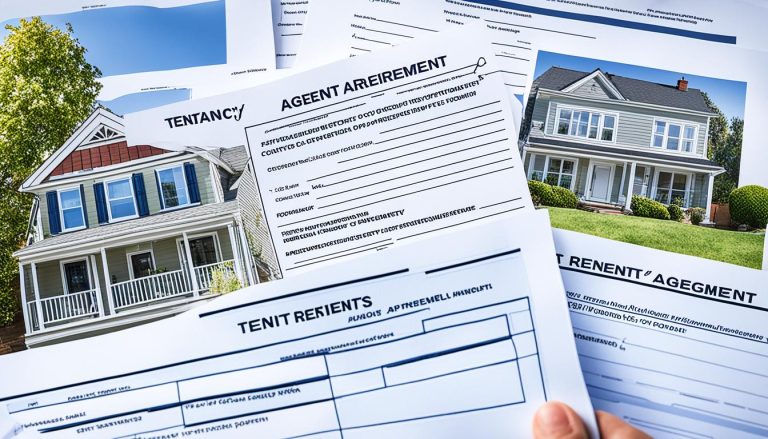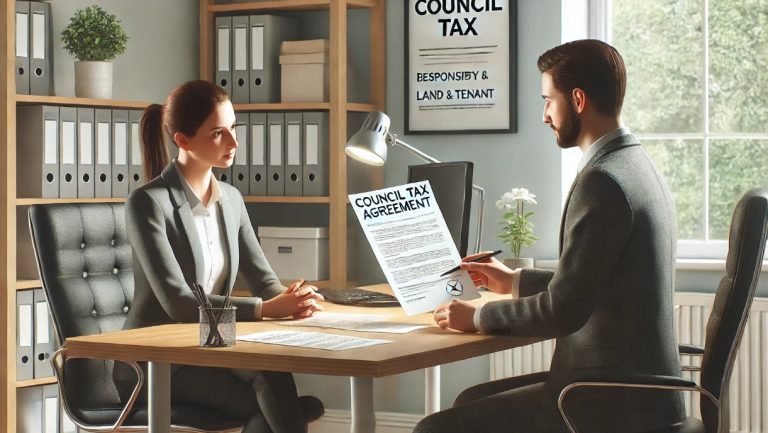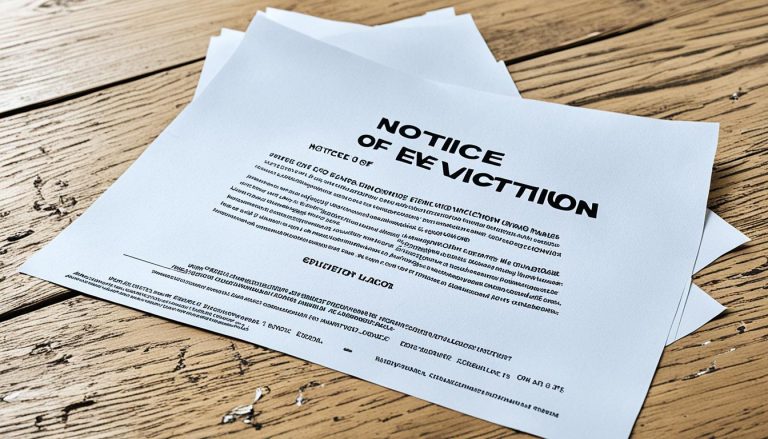As a tenant, it’s essential to understand your rights when it comes to your landlord’s access to the property you rent. One of the most frequently asked questions by tenants in the UK is whether they can call the police if their landlord enters the property without permission.
This issue can be stressful and intimidating, but the law is on your side, and tenants have clear legal protections.
In this blog, we will explore your rights as a tenant, the conditions under which a landlord can legally access your property, and the steps you can take—including whether it is appropriate to involve the police—if these rights are violated.
Understanding Tenant Privacy Rights in the UK

Under UK law, tenants have the right to what is known as “quiet enjoyment” of the property. This legal term essentially means that, as a tenant, you are entitled to live in your rented home without unreasonable interference from your landlord.
Quiet enjoyment covers a wide range of tenant rights, including the right to privacy and security.
This right is enshrined in the Landlord and Tenant Act 1985, which states that landlords are not permitted to enter the property at their convenience.
A landlord must respect the tenant’s privacy, and unless there are exceptional circumstances, they cannot enter the property without permission.
Key Legal Protections for Tenants
- Privacy and Security: Tenants have the right to privacy in their rented home, which includes the right to decide who can and cannot enter.
- Exclusive Possession: The tenant has exclusive possession of the property during the tenancy period, meaning that even the landlord cannot enter without proper notice or a valid reason.
- Quiet Enjoyment: The tenant is entitled to live in the property without unnecessary disturbances from the landlord or anyone acting on their behalf.
These protections ensure that tenants feel secure in their homes, free from unexpected or unauthorized visits from their landlord. Violating these rights can lead to serious consequences for the landlord.
Can My Landlord Enter Without Permission in the UK?

Generally speaking, a landlord cannot enter your property without your permission. In the UK, it is a legal requirement for landlords to provide at least 24 hours’ notice before entering the property, and this notice must be given in writing.
The notice should clearly outline the reason for entry, whether for repairs, inspections, or to show the property to potential tenants or buyers.
Legitimate Reasons for Entry
- Routine Inspections: Landlords are allowed to inspect the property periodically to ensure that it is being well-maintained, but they must provide reasonable notice.
- Repairs: If there is a need to conduct repairs or maintenance, the landlord must inform the tenant in advance and seek permission to enter.
- Viewings: If the landlord plans to sell the property or rent it out to new tenants, they are required to schedule viewings and give the current tenant proper notice.
If the landlord fails to follow these legal procedures, their entry is unlawful and can be considered a breach of your tenancy agreement. In such cases, you may be entitled to take legal action against the landlord for violating your rights.
Examples of Unlawful Entry
- Surprise Inspections: If your landlord shows up at your door unannounced for an inspection without providing the required notice, this constitutes an unlawful entry.
- Unauthorized Visits While You’re Away: If your landlord enters the property while you are out, without your permission or prior notice, this is a violation of your rights.
- Repeated Access Without Consent: Continuous unauthorized entries can amount to harassment and can be grounds for legal action.
Exceptions to the Rule: When Can a Landlord Enter Without Notice?
While landlords are generally required to provide notice, there are certain exceptions where they are legally allowed to enter the property without prior notice.
These typically involve emergency situations where immediate access is necessary to prevent damage to the property or harm to the occupants.
Common Emergencies That Allow Entry Without Notice
- Fire: If there is a fire or the risk of a fire, the landlord may need to enter the property immediately to address the issue.
- Gas Leak: In cases of suspected gas leaks, landlords can enter the property to prevent a potentially dangerous situation.
- Flooding or Severe Water Damage: If there is significant water damage that could cause further property damage or risk to the tenants, landlords may enter to fix the problem.
- Structural Issues: If the property has structural damage that poses an immediate danger, landlords can enter without notice to carry out repairs.
It’s important to note that even in these cases, landlords should notify the tenant as soon as possible after the fact, explaining the reason for the emergency entry.
What to Do If a Landlord Enters Without Permission?

If your landlord has entered the property without providing proper notice or obtaining your consent, it is important to act swiftly to protect your rights. Here are the steps you should take:
- Document the Incident: Make a detailed record of the event, including the date and time of entry, how the landlord gained access, and any conversations or actions that took place. If possible, take photos to document any evidence of unauthorized entry or damage.
- Review Your Tenancy Agreement: Check your tenancy agreement to confirm what it says about landlord access. The agreement should outline the circumstances under which the landlord can enter the property and the required notice period.
- Contact Your Landlord: Politely but firmly remind your landlord of your right to privacy and the legal requirement to give notice before entering. Explain that their entry without permission is unacceptable and ask for an explanation.
- Write a Formal Complaint: If the landlord continues to enter without permission, write a formal letter of complaint. This document may be useful if the situation escalates or if you need to involve the authorities.
- Report to the Appropriate Authorities: If the problem persists, consider reporting the landlord to the relevant authorities or seeking legal advice (more on this below).
Can I Call the Police if My Landlord Enters Without Permission?
Yes, if your landlord enters your property without permission and you feel that your safety or privacy is being violated, you can call the police. However, it’s important to understand when involving the police is appropriate and what outcomes you can expect.
When to Call the Police?
- Harassment or Aggression: If the landlord’s entry involves any form of harassment, intimidation, or aggression, you should contact the police immediately. This can include repeated unauthorized entries, threats, or inappropriate behaviour.
- Trespassing: If your landlord enters the property without valid permission and without an emergency reason, they may be guilty of trespassing. While trespassing is generally a civil matter, involving the police may help resolve the situation, especially if it’s ongoing.
What Happens When You Call the Police?
- The police may come to the property and issue a warning to the landlord, reminding them of the legal obligations regarding tenant privacy.
- If the landlord’s actions amount to harassment, the police may investigate further, and the landlord could face charges under the Protection from Harassment Act 1997.
Reporting Your Landlord to Authorities
If the situation does not warrant immediate police involvement or if your landlord continues to violate your privacy after a police warning, you can report them to other relevant authorities. Several organisations provide assistance to tenants in these circumstances.
Where to Report a Landlord:
- Local Council: Your local council’s housing department can investigate complaints about landlords who violate tenant rights. They may take action if the landlord continues to enter your property without permission.
- Property Ombudsman: The Property Ombudsman is a free, independent service that helps resolve disputes between landlords and tenants. They can mediate the situation and, if necessary, impose sanctions on landlords who violate tenants’ rights.
- Shelter UK: This charity provides legal advice to tenants and can help you understand your rights. If necessary, they can also offer guidance on taking legal action against your landlord.
Each of these options allows tenants to escalate their complaints in cases where landlords fail to respect their privacy or repeatedly break the terms of the tenancy agreement.
Can My Landlord Enter My Property Without Me Being There?

One of the most frequently asked questions is whether a landlord can enter a tenant’s property if they are not present. The short answer is no, unless they have your permission or are dealing with an emergency.
The legal rules governing access to the property are the same whether you are home or not. The landlord must give you written notice, and you must agree to the proposed time and reason for entry.
If you are not home, you can choose to reschedule the visit or allow the landlord to enter at the agreed time in your absence.
If your landlord enters the property while you are away without notice, this is a violation of your privacy and may give you grounds to take legal action.
Can a Landlord Enter the Garden Without Permission in the UK?
Gardens and other external areas attached to the property are usually considered part of the rented premises. Therefore, the same rules apply: landlords need to provide notice before entering.
However, some tenancy agreements may include specific clauses about access to the garden. For example, if the landlord has agreed to maintain the garden, the agreement may allow them or their gardener to access the garden without prior notice. Always check your tenancy agreement for details regarding garden access.
If your landlord enters the garden without permission and the agreement does not allow it, this could still be considered a violation of your right to privacy.
Who Can I Report My Landlord To in the UK?

If your landlord repeatedly enters your property without permission, you have several avenues for reporting the violation. Beyond the police, there are legal and governmental organisations that can provide assistance.
Options for Reporting a Landlord:
- Local Council: Most local councils have departments that deal with tenant complaints. They can investigate the landlord’s behaviour and impose penalties if necessary.
- The Property Ombudsman: If your landlord is registered with the Property Ombudsman, this organisation can mediate disputes and issue rulings to resolve the issue.
- Citizens Advice Bureau: This service offers free legal advice on tenant rights. They can help you understand your options and guide you through the complaint process.
- Shelter UK: Shelter provides extensive support to tenants facing issues with landlords. They can offer free legal advice and assist with taking further action if needed.
Each of these services is designed to protect tenants from landlords who fail to respect their legal obligations.
How to Protect Your Rights as a Tenant in the UK?
Protecting your rights as a tenant begins with understanding the law and keeping thorough records of any interactions with your landlord. Here are some practical tips to safeguard your privacy:
- Keep Written Records: Always communicate with your landlord in writing (email or formal letters) to ensure there is a paper trail of all discussions about property access.
- Know Your Tenancy Agreement: Ensure you fully understand the terms of your tenancy agreement, particularly regarding property access.
- Seek Legal Advice: If your landlord repeatedly violates your rights, don’t hesitate to seek legal advice from services like Citizens Advice, Shelter, or a solicitor.
By taking these steps, you can protect your privacy and assert your rights as a tenant.
Legal Action Against a Landlord for Harassment
If a landlord’s repeated entry into your property without permission constitutes harassment, you may have the grounds to take legal action. Harassment can include not only physical entry but also intimidating behaviour, threats, or emotional manipulation.
Filing for Legal Action:
- You can apply for an injunction to prevent further harassment or unwanted entry by the landlord.
- In some cases, tenants can claim compensation for emotional distress or financial loss caused by the landlord’s behaviour.
In cases of severe harassment, legal action may involve obtaining a restraining order or pursuing damages in a civil court.
Conclusion
Knowing your rights as a tenant is vital to ensuring a comfortable and secure living environment. Landlords in the UK are bound by strict laws when it comes to accessing rented properties, and any violations can be dealt with through legal means.
If your landlord enters your property without permission, don’t hesitate to protect your rights, whether through communication, reporting to authorities, or involving the police if necessary.
FAQ Landlord Enters Without Permission
What qualifies as reasonable notice for a landlord to enter?
In the UK, landlords must provide at least 24 hours’ notice in writing before entering a tenant’s property for non-emergency purposes.
What is quiet enjoyment in UK tenancy law?
Quiet enjoyment refers to a tenant’s right to use and live in their property without unreasonable interference from the landlord.
Can my landlord enter the property while I am at work?
No, landlords cannot enter your property without your consent, even if you are not present, unless it is an emergency.
What is considered an emergency for a landlord to enter without notice?
Emergencies include events like fires, gas leaks, or flooding—anything that poses an immediate threat to the property or occupants.
How can I prove that my landlord entered without permission?
Keep detailed records of the incident, including times, dates, and any visible evidence of entry. Communicate with your landlord in writing to document their responses.
Can I change the locks if my landlord keeps entering without permission?
You can change the locks in some circumstances, but it is essential to check your tenancy agreement and inform your landlord.
What legal protections do I have if my landlord harasses me?
If your landlord’s behaviour amounts to harassment, you can apply for an injunction or claim compensation for distress through legal action.






